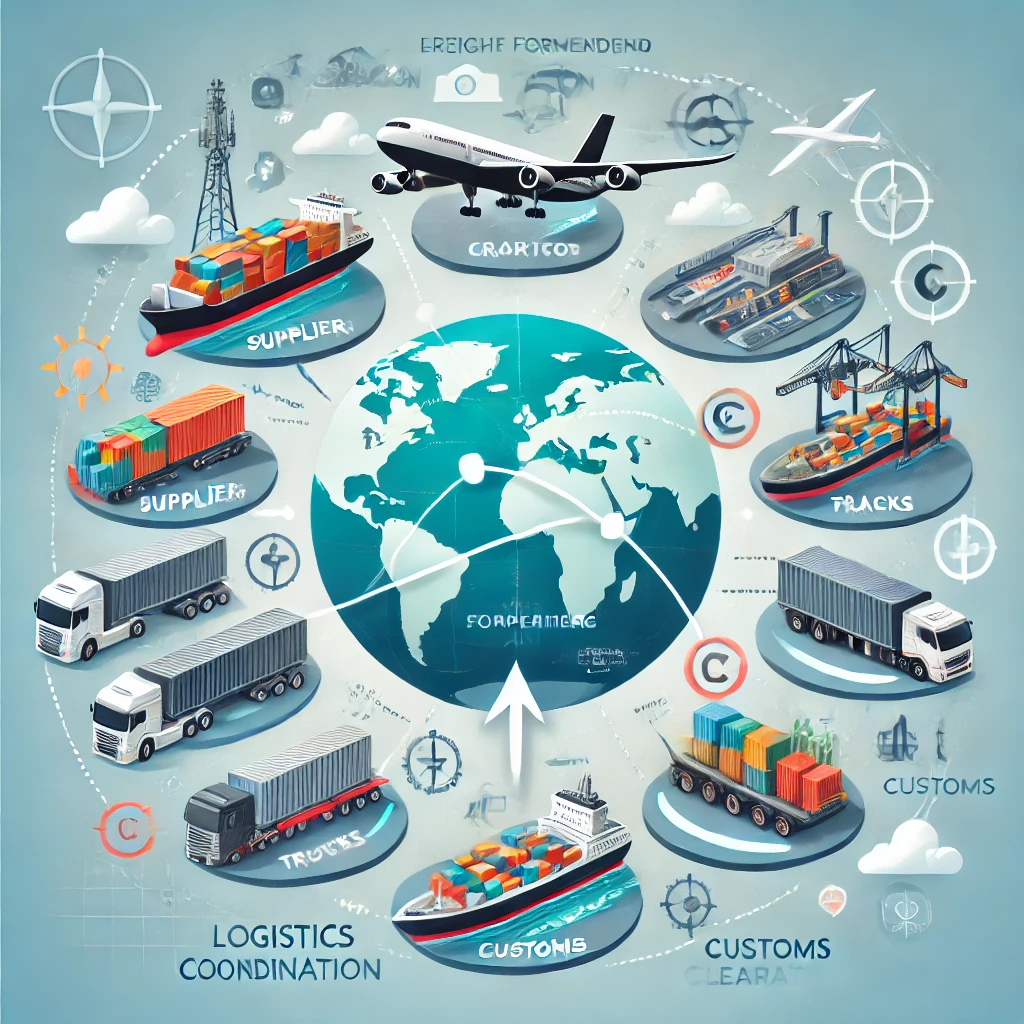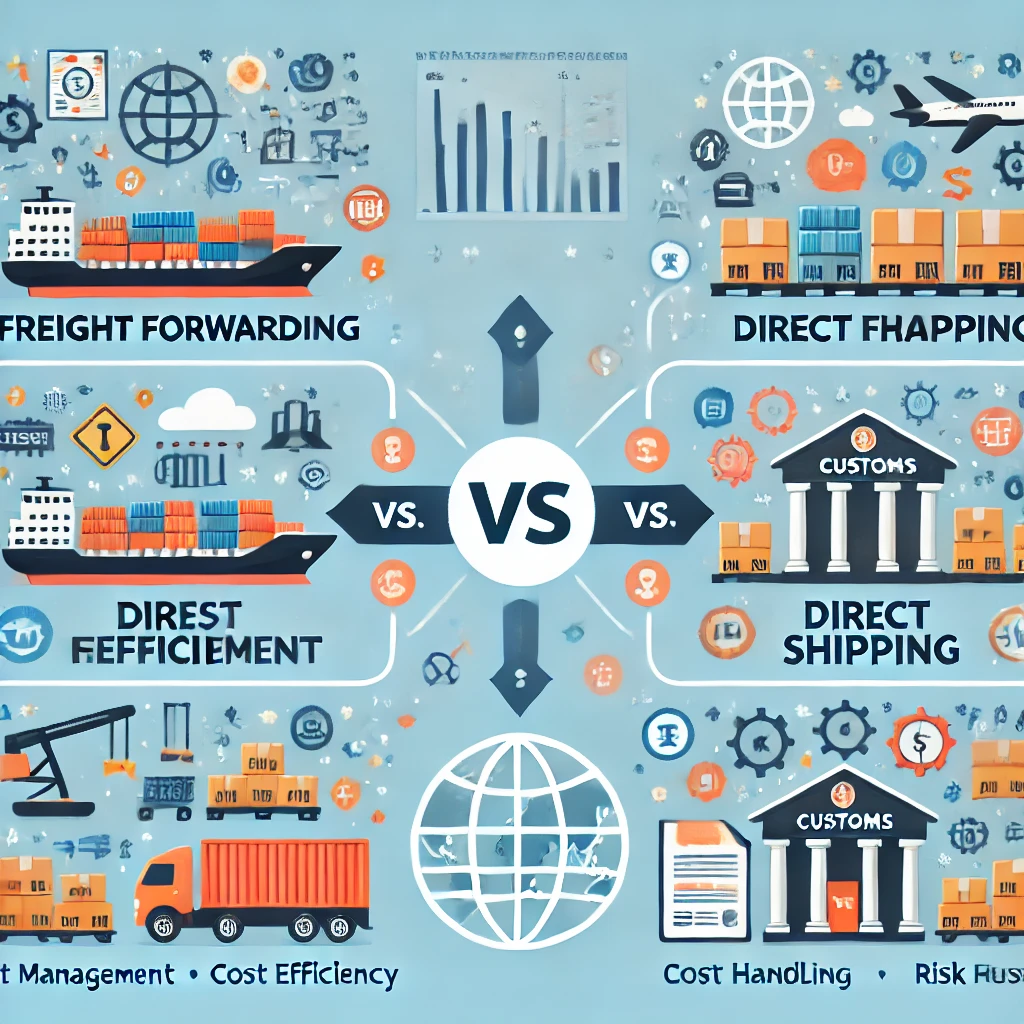The Role of Freight Forwarding Companies in Modern Practices
This article provides a detailed explanation of freight forwarding companies, highlighting their key features, practical applications, and relevance for businesses and professionals.

What Are Freight Forwarding Companies?
Freight forwarding companies act as intermediaries between shippers and carriers, managing the transportation of goods across air, sea, road, and rail networks. They specialize in optimizing supply chain logistics, handling customs documentation, and ensuring timely deliveries.
Key Responsibilities of Freight Forwarding Companies
Responsibility | Description |
Logistics Coordination | Plans and manages cargo transport routes. |
Customs Clearance | Ensures compliance with international trade laws. |
Freight Rate Negotiation | Secures cost-effective shipping rates. |
Cargo Consolidation | Combines shipments to reduce transportation costs. |
Real-Time Tracking | Provides shipment monitoring and updates. |
Risk & Insurance Management | Protects cargo against loss, damage, or theft. |

Key Features of Freight Forwarding Companies
1. Multi-Modal Transportation Management
- Freight forwarders handle air freight, ocean freight, trucking, and rail transport.
- They offer custom solutions based on cost, speed, and cargo type.
2. Customs & Regulatory Compliance
- Manages import/export documentation, tariffs, and duties.
- Ensures smooth customs clearance to avoid delays.
3. Cargo Tracking & Visibility
- Uses advanced tracking technology for real-time shipment updates.
- Enhances supply chain transparency and efficiency.
4. Freight Insurance & Risk Mitigation
- Protects shipments against unexpected delays, loss, or damage.
- Helps businesses minimize financial risks.
5. Global Trade Network
- Collaborates with shipping lines, airlines, trucking companies, and rail operators.
- Facilitates efficient cross-border trade for businesses of all sizes.
Practical Uses of Freight Forwarding Companies
1. International Trade & Global Shipping
- Businesses use freight forwarders to streamline global trade operations.
2. E-Commerce & Retail Logistics
- Ensures fast and reliable delivery for online businesses.
3. Supply Chain Optimization
- Reduces shipping costs and transit times through strategic planning.
4. Industrial & Manufacturing Transport
- Handles bulk cargo, heavy machinery, and raw materials efficiently.
5. Warehousing & Distribution Services
- Provides temporary storage solutions and last-mile delivery support.

Advantages and Challenges of Freight Forwarding Companies
Advantages | Challenges |
Reduces logistics complexity for businesses. | High costs for premium freight services. |
Access to global carrier networks and better freight rates. | Customs delays and trade restrictions can impact shipping. |
Real-time shipment tracking improves transparency. | Risk of damage or loss if not insured. |
Streamlines international trade compliance. | Relies on multiple third-party carriers. |
Top Freight Forwarding Companies in the Industry
Company | Key Strengths |
DHL Global Forwarding | Strong global logistics network, express shipping. |
Kuehne + Nagel | Advanced digital freight solutions, customized logistics. |
Expeditors International | Expertise in supply chain optimization. |
DB Schenker | Reliable air, ocean, and land transport solutions. |
C.H. Robinson | Comprehensive freight brokerage services. |

Freight Forwarding vs. Direct Shipping
Aspect | Freight Forwarding | Direct Shipping |
Logistics Management | Handled by an expert freight forwarder. | Managed by the business itself. |
Customs Clearance | Fully managed by the forwarder. | Requires in-house expertise. |
Cost Efficiency | Optimized through consolidation. | Can be higher for small shipments. |
Risk Management | Covered through insurance and compliance. | Higher risk without proper documentation. |
When to Use a Freight Forwarding Company?
- Best for businesses handling large or international shipments.
- Ideal for companies that need customs clearance support.
- Recommended for optimizing supply chain efficiency.
- Not necessary for small, local shipments or direct-to-consumer deliveries.
Conclusion
Freight forwarding companies play a crucial role in modern supply chains, helping businesses manage shipping logistics, reduce transportation costs, and ensure smooth international trade operations.
By leveraging freight forwarding services, businesses can improve efficiency, comply with trade regulations, and enhance supply chain visibility. Whether you’re an importer, exporter, or logistics manager, partnering with a freight forwarder can optimize your shipping strategy and improve operational success.
